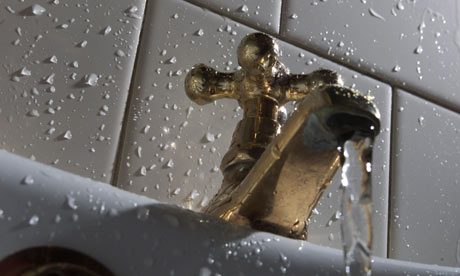
A NUMBER of Bulawayo residents have been receiving unusually high water bills in the past few months despite the fact that council is observing a strict water rationing regime.
Residents have endured water cuts for several years due to the dwindling supplies. But water charges by the local authority have largely remained the same.
Yesterday we carried a story where some residents claimed to have received bills of as much as $250 for a single month. Some said they had been paying an average of $28 a month before the excessive bills.
The affected residents have been quick to point out that the bills could have something to do with a directive by Local Government minister Ignatius Chombo last year to all local authorities to cancel debts owed by ratepayers. Bulawayo City Council, like many local authorities was badly affected by the debt cancellation as it saw its revenue collection drop to $2,4 million per month from $6,9 million.
However, council in its response to the complaints has noted that the high bills are likely not as a result of a faulty billing system.
Council assistant public relations officer Bongiwe Ngwenya said the reasons for a high water bill could be leaks, not paying bills every month and using too much water by exceeding the water rationing limit. More importantly, council warned that residents could be paying for air that goes through the piping system during the water-shedding hours.
Council said residents are encouraged to ensure their taps are tightly closed during shedding periods.
“When there is no water coming out of the tap, the air that is trapped within the water pipes now rolls the meter and comes out of your tap.
- Chamisa under fire over US$120K donation
- Mavhunga puts DeMbare into Chibuku quarterfinals
- Pension funds bet on Cabora Bassa oilfields
- Councils defy govt fire tender directive
Keep Reading
“This movement of the figures subsequently affects the amount of water that is billed,” council says.
“There is thus a possibility that one can have a high meter reading for a month because of the air that passed through the system. It is a challenge for the municipality as such to gauge that the meter reading could have been air or water that has passed through the meter.”
These tips are very crucial for residents and council should be doing more to publicise them. The fact that most residents do not know these things shows that council should, as a matter of urgency, work on innovative ways of publicising the tips.










